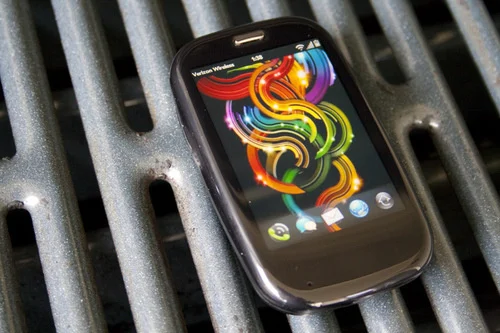
According to Bloomberg sources, Palm has quietly put itself up for sale and is seeking official bids as early as this week. HTC and Lenovo have both “looked at the company and may make offers,” and if that’s true, Palm’s new WebOS operating system may just survive.
Palm has been struggling, badly. Despite having one of only three modern, consumer smartphone OSes (the others being Apple‘s iPhone OS and Google‘s Android), as well as two well-received smartphones, Palm has been sinking fast. They launched on Sprint, a small carrier, and by the time their exclusivity deal was up, their Pre and Pixi smartphones had lost all their initial hype. Sales have been desperate; they’ve taken to slashing prices dramatically on the Verizon versions of the Pre and Pixi in order to salvage some sales.
Rumors that the company would be put up for sale have dogged Palm for a few weeks now–their stock prices have even rose on the strength of those rumors. But this is the first time we’ve heard any solid sources confirm that rumor. And the buyers are very, very interesting.
HTC and Lenovo were both specifically named as potential buyers for Palm. It would be a huge, and intriguing, move for either company. HTC is a major smartphone manufacturer but uses other companies’ software (at this point, Android and Microsoft‘s Windows Mobile). They would be an ideal partner for Palm: Palm’s weakness with the Pre and Pixi is hardware, and HTC has made some of the strongest, best hardware on the planet (including the Google Nexus One, HTC HD2, and the upcoming HTC Evo 4G).
HTC is also, despite their success, not nearly a household name, whereas Palm is a known and respected entity. HTC has proven their ability to make amazing phones with OSes not their own; the top four or five Android phones in 2010 will all be from HTC. If HTC was to make a phone using Palm’s excellent (arguably even better than Android) WebOS software, they could have a real success on their hands.
And, now that HTC is facing heat from Apple (possibly a veiled jab at Google, but the result is the same: a lawsuit), a partnership with Palm could help distance the company from Google, as well as giving them access to a back catalog of Palm’s licenses and patents. Palm, remember, has been in the smartphone game far longer than Apple, reaching back to the Treo and even further to the Palm Pilot, and they’ve acquired a mass of patents along the way.
Lenovo, on the other hand, seems less likely. Lenovo primarily makes computers, and has zero presence in the U.S. smartphone market. It’s not clear to me what Lenovo would want with a failing U.S. smartphone maker–unlike HTC, Lenovo doesn’t really have anything to bring to that partnership that could make Palm and WebOS competitive or at least viable.
Palm, HTC, and Lenovo have all declined to comment, though if this is true, we’ll be hearing official word soon enough.
Recognize your brand’s excellence by applying to this year’s Brands That Matter Awards before the early-rate deadline, May 3.